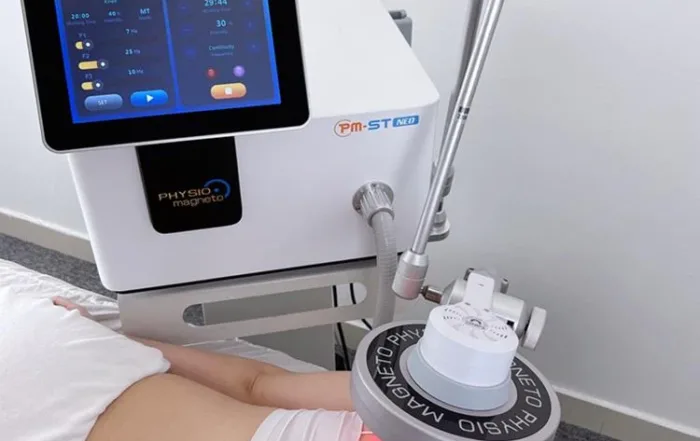Routine health visits are often seen as just another item on the to-do list—get some tests, chat briefly with your doctor, and move on. But what if you looked at them differently? What if they were opportunities to jumpstart meaningful, lasting change?
Preventive care isn't just about spotting risks early; it's about gaining a personalized roadmap to better health. The advice your doctor gives you isn’t just routine information—it’s a powerful tool for transformation.
Whether it's improving your diet, becoming more active, managing stress, quitting smoking, or sleeping better, those recommendations are grounded in science and customized to your unique health profile. The key? Consistency. Small changes—like a daily 30-minute walk or replacing soda with water—can build powerful momentum. Over time, these simple steps lead to big results.
This guide will help you turn your doctor’s advice into sustainable, practical habits. You’ll discover how to stay motivated, track your progress, and adjust your routine as your life evolves. Think of your annual check-up not just as a snapshot of your health—but as a catalyst for lifelong wellness. With the right mindset and a willingness to grow, every visit can bring you closer to the healthy life you deserve.
Why Your Annual Check-Up Matters
Your check-up isn’t just about blood pressure or cholesterol. It’s a comprehensive opportunity to assess your overall health, catch silent issues early, and build a personalized roadmap for prevention. During your visit, your healthcare provider will evaluate a wide range of factors—vital signs, family history, lifestyle habits, mental health, and more. This holistic approach helps detect potential problems before they become serious, from heart disease and diabetes to certain cancers or mental health concerns.
Screenings such as blood work, physical exams, and age-appropriate tests (like mammograms or colonoscopies) are vital parts of the process. Your doctor may also assess your weight, diet, exercise habits, sleep quality, and emotional well-being. These touchpoints offer insight into your current health and serve as starting points for proactive changes.
More importantly, your check-up provides a chance to talk openly with your doctor. Whether you’re struggling with stress, thinking about quitting smoking, or wondering about supplements, your provider can offer evidence-based guidance. Together, you can create a prevention plan that fits your life and reduces long-term health risks.
In essence, a check-up isn’t just a routine task—it’s a powerful tool for staying ahead of health issues and living your best, healthiest life.
-
Vitals (blood pressure, heart rate, BMI)
-
Lab results (cholesterol, blood sugar, thyroid levels)
-
Lifestyle habits (diet, exercise, stress)
-
Family and personal medical history
These check-ups are a goldmine of actionable insights. But many patients leave the office feeling overwhelmed or unsure how to implement changes.
The Disconnect: Why Good Advice Doesn’t Always Lead to Action
Here’s why many people struggle to follow through with doctor recommendations: life gets in the way. After a check-up, it’s easy to return to old routines, especially when the advice involves changing habits that are deeply ingrained—like eating healthier, exercising more, quitting smoking, or reducing stress. Even with the best intentions, implementing lifestyle changes can feel overwhelming, particularly when juggling work, family, and other responsibilities.
Another common barrier is a lack of clarity. Sometimes, recommendations are given in medical terms or rushed through during a short appointment, leaving patients confused about the “how” behind the advice. Without clear, actionable steps, follow-through becomes difficult.
Motivation also tends to fade without immediate results. Preventive care is about long-term gains, and without visible or fast rewards, it’s easy to lose focus. Additionally, emotional factors—such as fear of change, denial about health risks, or past negative healthcare experiences—can prevent individuals from acting.
Finally, access matters. If follow-up care involves costs, travel, or long wait times, it can discourage even the most motivated patients. The good news? Understanding these barriers is the first step in overcoming them. With support, education, and practical strategies, you can turn good intentions into real, lasting health improvements.
-
Lack of clear guidance – Doctors give clinical advice, but not always practical steps.
-
Overwhelm – Being told to “eat better,” “exercise more,” or “lower stress” can be vague and daunting.
-
No follow-up support – After the visit, you’re often on your own.
-
Old habits die hard – Change requires consistency and often a mindset shift.
So how do you bridge the gap?
Step-by-Step: Turning Doctor’s Advice into Daily Habits
1. Understand Your Health Priorities
Your doctor may suggest losing weight, lowering blood sugar, or reducing blood pressure—not as a criticism, but as a proactive way to protect your health. These common recommendations are based on years of research linking excess weight, high blood sugar, and elevated blood pressure to chronic diseases like diabetes, heart disease, stroke, and kidney failure. Even modest improvements in these areas can make a big difference. Losing just 5-10% of your body weight can significantly reduce your risk of developing serious conditions. Lowering your blood sugar helps prevent the progression from prediabetes to type 2 diabetes, and managing blood pressure can protect your heart and reduce the risk of heart attacks and strokes.
These goals might feel overwhelming, but your healthcare provider is there to support you. Together, you can create a plan that works with your lifestyle—whether it’s adjusting your diet, increasing physical activity, managing stress, or starting medication when needed. The key is consistency. Small, daily actions add up over time and lead to lasting health benefits. Don’t hesitate to ask questions or seek help from a dietitian, fitness coach, or support group. With guidance and persistence, you can take control of your health and achieve real, measurable progress.
-
What are the most urgent goals?
-
What is one change I can start with this week?
Pro Tip: Write these goals down in a health journal or app.
2. Translate Medical Terms into Real-Life Actions
Turning abstract medical advice into clear daily habits is the key to real change. For example, if your doctor advises “eat healthier,” break it down into specific actions: swap sugary drinks for water or unsweetened tea, add one vegetable to each meal, or prep your lunches at home instead of ordering takeout. If you’re told to “get more exercise,” start by walking for 20 minutes each day after dinner or taking the stairs instead of the elevator. These small changes feel manageable and can be built into your existing routine.
If your doctor recommends managing stress, identify daily practices like five minutes of deep breathing in the morning, journaling before bed, or using a meditation app during lunch breaks. Instead of the vague goal to “lose weight,” aim to track your meals, stick to portion sizes, and reduce late-night snacking.
The more specific the habit, the easier it becomes to maintain. Set reminders, use apps, or create a checklist if that helps. Most importantly, track your progress and celebrate small wins—those add up. Lasting change doesn’t come from one big shift; it comes from consistent, intentional steps taken daily. Turn your doctor’s advice into a personal action plan—one small habit at a time.
-
“Lower cholesterol” → Eat oatmeal for breakfast and snack on almonds.
-
“Reduce blood sugar” → Walk 20 minutes after lunch and dinner.
-
“Improve sleep hygiene” → No screens 1 hour before bed; establish a 10 p.m. bedtime.
3. Build Micro-Habits
Start small. Instead of overhauling your entire diet overnight, begin with one or two manageable changes. Swap sugary drinks for water or herbal tea. Add a serving of vegetables to one meal each day. Choose whole grains instead of refined ones like white bread or pasta. Cook at home a few times a week to better control ingredients and portion sizes. Keep healthy snacks—like fruits or nuts—on hand to avoid impulse junk food. These small, consistent steps build momentum and confidence. As they become habits, you can add more changes gradually. Sustainable progress starts with simplicity and grows over time.
-
Replacing soda with water.
-
Adding one vegetable to every meal.
-
Walking for 10 minutes daily.
Why it works: Micro-habits are easier to stick with and build momentum over time.
4. Schedule Follow-Ups and Accountability
Accountability increases success. Try sharing your goals with a trusted friend, family member, or coach who can check in regularly and offer encouragement. Join a support group or health-focused community—online or in person—for motivation and shared progress. Use apps or journals to track your habits, meals, and workouts. Schedule follow-up appointments with your doctor to monitor improvements and stay committed. Even small check-ins can reinforce your commitment and help you adjust your plan. Knowing someone is rooting for you—or watching—keeps you focused and less likely to give up. Accountability turns good intentions into real, lasting change.
-
Booking a follow-up with your doctor or a health coach.
-
Using apps that track steps, meals, or sleep.
-
Joining online health communities or support groups.
5. Set SMART Goals
Make goals SMART: Specific, Measurable, Achievable, Relevant, and Time-bound. Instead of saying “I want to be healthier,” say “I’ll walk 30 minutes after dinner, five days a week, for the next month.” This goal clearly outlines what you’ll do, how often, and for how long. It’s realistic and directly supports your health. SMART goals keep you focused and motivated by breaking down big ambitions into manageable steps. Revisit your goals regularly to track progress, celebrate small wins, and adjust as needed. With a SMART approach, you turn vague intentions into concrete actions—and that’s where true progress begins.
-
Bad goal: I’ll get healthier.
-
SMART goal: I’ll walk 30 minutes, 5 days a week, for the next month.
6. Celebrate Progress (Not Just Outcomes)
You may not lose 10 pounds in a week—but did you take steps toward your goal? Did you choose a healthy meal instead of fast food? Did you go for a walk or do some form of exercise? Every positive choice matters and builds momentum. Progress isn’t always about big leaps; it’s about consistent small actions. Celebrate these wins because they keep you motivated and moving forward. Remember, lasting change takes time. Focus on the habits you’re building, not just the number on the scale. Each day you try, you’re closer to your goal.
-
Say no to fast food?
-
Go to bed on time?
-
Cook at home three times?
Celebrate consistency, not perfection.
Support Tools to Make Change Easier
-
Apps: MyFitnessPal, Calm, Noom, Fitbit
-
Wearables: Smartwatches or fitness bands to track movement and sleep
-
Meal Services: HelloFresh, Blue Apron (for healthier cooking)
-
Telehealth: Use platforms like HealthWorks for virtual check-ins
FAQs: Turning Medical Advice into Lifestyle Change
1. What if I don’t fully understand my doctor's recommendations?
Ask for clarification during your appointment or follow up via patient portal messages.
2. How long does it take to form a new habit?
It takes about 21–66 days for a habit to become automatic. Start small and stay consistent.
3. What should I do if I fall off track?
Reflect, don’t judge. Restart your routine the next day. Progress is not linear.
4. Can I ask my doctor for help with goal-setting?
Yes! Many providers offer or refer to wellness programs, dietitians, or coaches.
5. Do lifestyle changes really make a difference without medications?
In many cases, yes—especially in early stages of chronic disease. Lifestyle change can prevent or reverse conditions like Type 2 diabetes and high blood pressure.
Conclusion: Your Health, Your Habits, Your Power
Check-ups are your health’s checkpoint—but transformation happens daily. When you take your doctor’s advice seriously and turn it into small, intentional steps, you’re investing in a longer, healthier, and more vibrant life.
Lifestyle change is not about perfection—it’s about consistency, learning, and building a future you can thrive in.
🎯 Ready to turn your check-up into a check-in with your best self?
At HealthWorks, we don’t just treat you—we coach, guide, and empower you.
✅ Book your annual check-up ✅ Get personalized lifestyle support ✅ Start transforming your daily habits now
📍 Visit us at: 1240-A Central Ave., Summerville, South Carolina 📞 Call us at: 843.821.8787
👉 Schedule Your Visit Today Find a clinic near you and start your journey to better living!
OPENING HOURS
| Mon.-Fri. | 8am-7pm |
| Saturday-Sunday | Closed |



